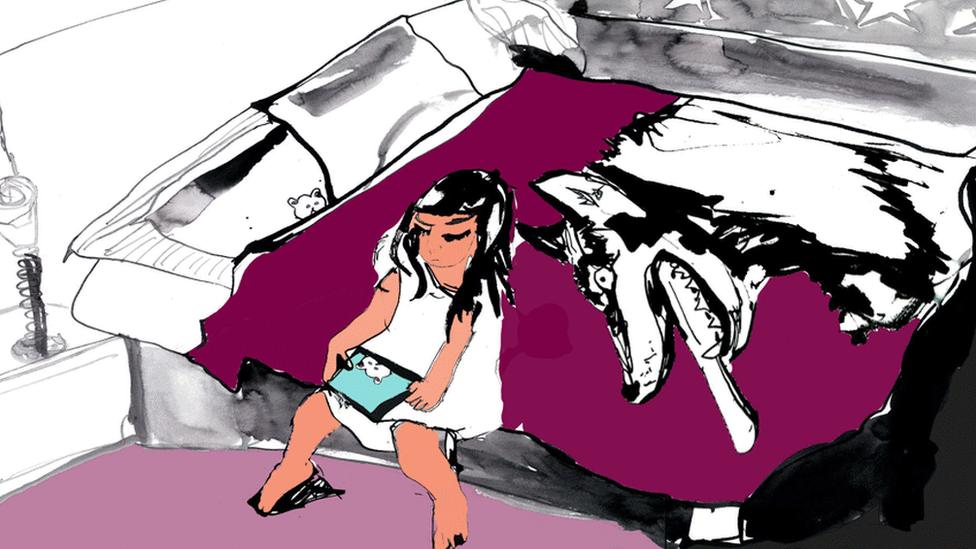Thousands of young people in NI treated for mental health problems
- Published
Mental health problems in Northern Ireland 'like a tsunami'
Ten thousand young people in Northern Ireland were treated for serious mental health problems last year.
And children as young as four are experiencing anxiety and behavioural problems.
Since 2009, 144 children and young people under the age of 19 have taken their own lives.
So why do more children need mental health services than ever before?
To try to find out what's behind these shocking statistics, I have been following some young people and their parents on their journey to access treatment.
Luke first displayed signs of anxiety when he was five.
By the time he was eight, he was showing signs of obsessive compulsive disorder and then when he was 13, he was finally diagnosed with Asperger's.
"Every morning it was a struggle to get him into school," says his mother, Lyndsey.
"He had meltdowns, he just couldn't cope."
Young girls needing mental health services increasing
The number of very young children needing professional help is on the rise, particularly young girls.
In 2016, 106 under 14s were referred to Child and Adolescent Mental Health Services (CAMHS).
Last year that figure had risen to 282. Two thirds of those were girls.
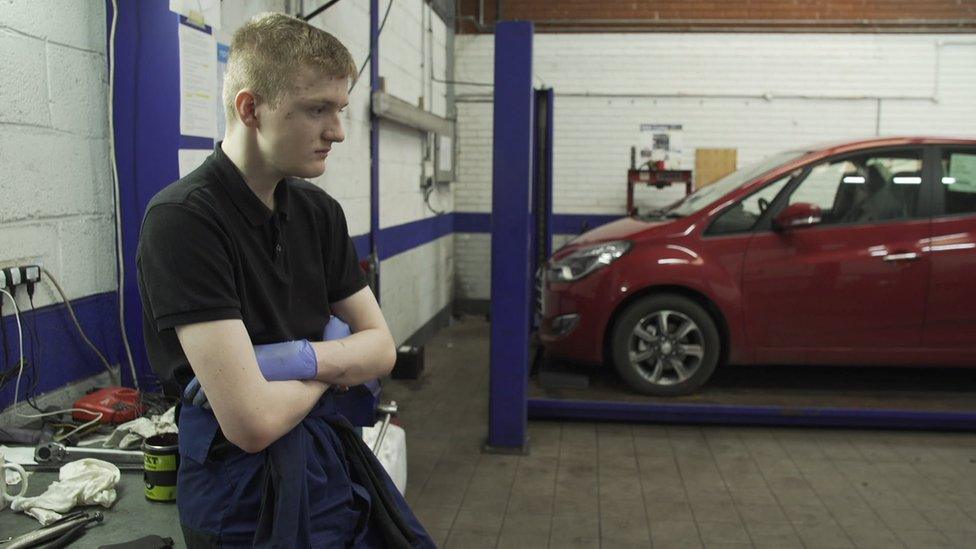
Luke has Asperger's and was diagnosed when he was 13
So why do more young people than ever need mental health services?
Stopping teenage anxiety 'tsunami'
Nigel Frith, principal of Drumragh Integrated College in Omagh, says anxiety levels in young people today are "unprecedented".
"The scale of the need is huge," he says.
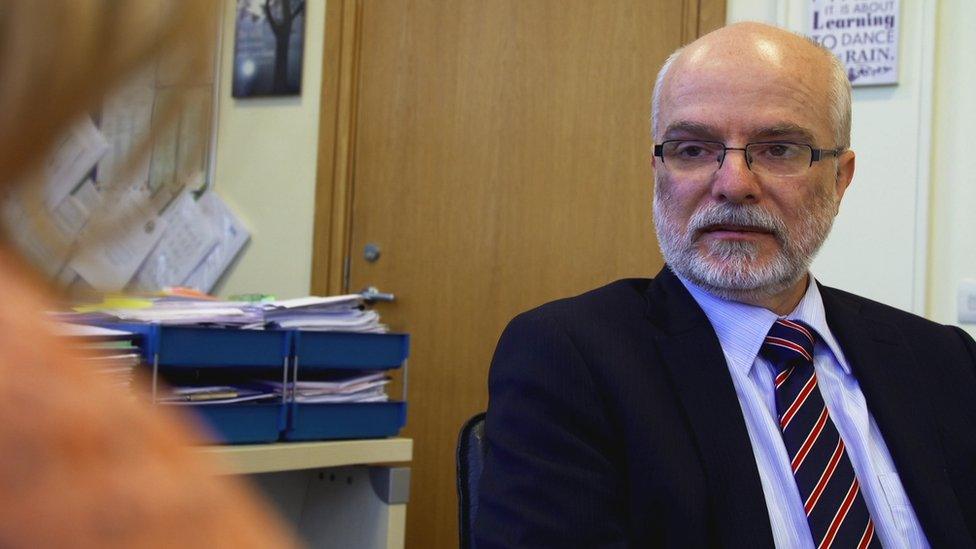
Nigel Frith, principal of Drumragh Integrated College, says the mental health of its students is the number one priority
"The analogy I'm using constantly is, if we were standing on a beach looking at a tsunami coming towards us which is teenage anxiety, each of us is standing with our little bucket hoping we can catch it and stop it and hold it back.
"And of course you can't stop a tsunami with a small bucket."
The school has made the mental health of its students its number one priority.
It has been delivering a resilience programme called Hopeful Minds to pupils - just one of a number of initiatives featured in a BBC documentary, made by Erica Starling Productions, due to be broadcast on Monday night.

Where to go if you need help
If you, or someone you know, is struggling, you can find support here.

Networking needed for progress
Dr Richard Wilson, a consultant psychiatrist at the Northern Health Trust, said mental health is everyone's business, not just that of CAMHS.
"It's a whole network working together and that's what's needed to make any progress towards recovery," he says.
Catherine shares her struggle to help her daughter Ana, who spent half her teenage life in different hospitals.
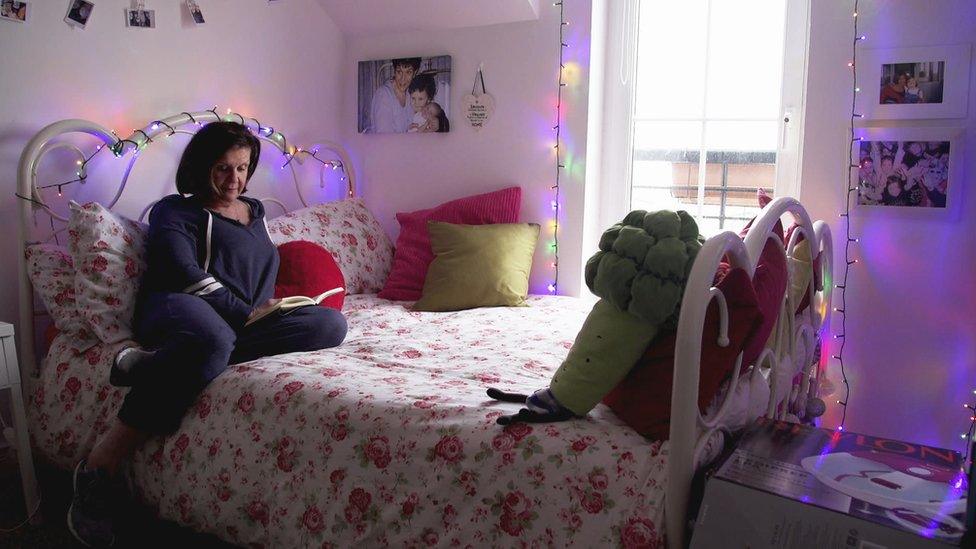
Catherine noticed no change in her daughter Ana, despite years of using different mental health services
"When your child has been in hospital for three years and you go to the local supermarket and they say, 'well how is she today', what do you say?
"Because she's no different today than she was three years ago."
Mr Frith believes there are a number of things contributing to anxiety, depression and self-harm in our children.
"One is social media obviously and the fact that children are becoming addicted to the internet, to social media and to their smart phones.

"Beyond that, the education system is structured in a way that makes assessment relentless. It's an ongoing process.
"We're constantly pulling up the plant to see if it's growing yet and that comes at a cost.
"We're constantly encouraging children to accept the knocks that life brings, and to say, that's okay, I can build on that."
Teens on the Edge is on BBC One Northern Ireland on Monday at 21:00 GMT.
- Published11 September 2018
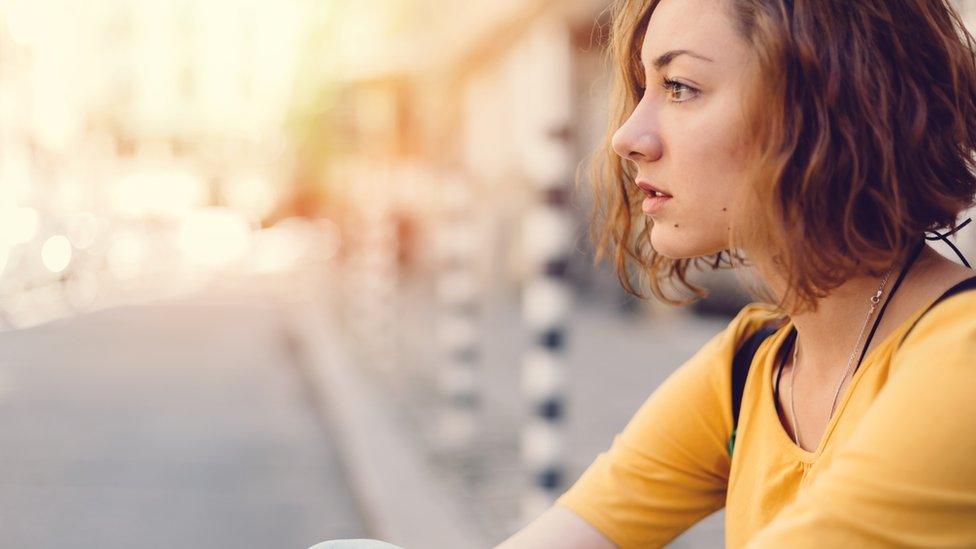
- Published27 September 2018
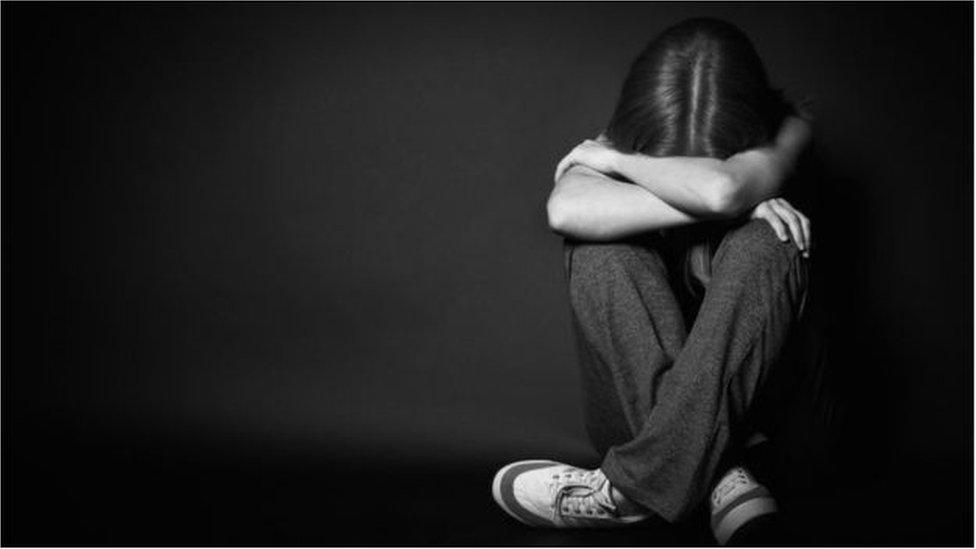
- Published10 February 2018
